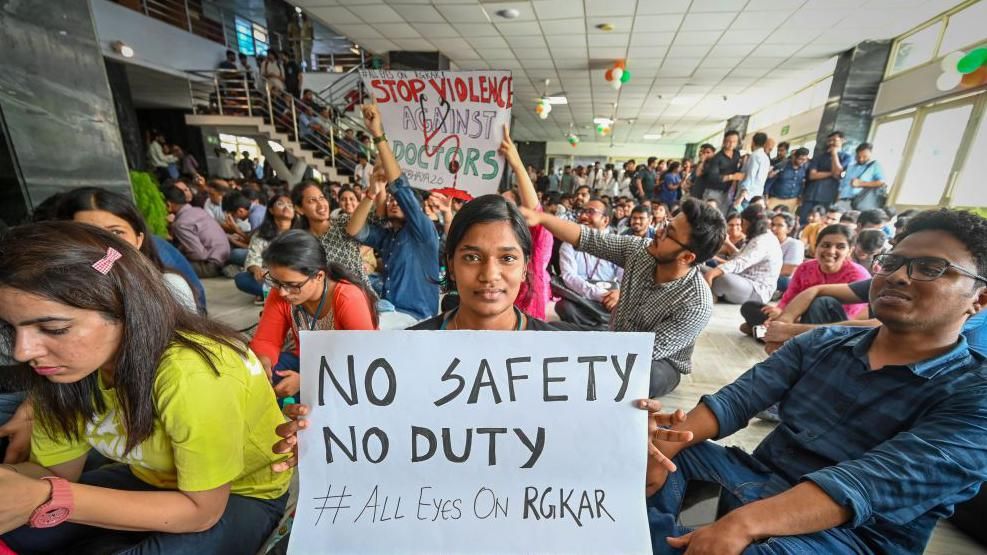By Chinasaokwu Helen okoro
A trainee doctor was found dead in a Kolkata hospital, igniting nationwide protests and calls for enhanced security in India.
Early on Friday morning, a 31-year-old female trainee doctor at Kolkata’s RG Kar Medical College was found dead, having been subjected to extensive injuries.
She had retired to sleep in a seminar hall after a demanding day and was discovered half-naked on the podium the next morning.
Police have arrested a hospital volunteer worker in connection with the alleged rape and murder.
The incident has ignited widespread outrage, with tens of thousands of women in Kolkata and West Bengal expected to join a ‘Reclaim the Night’ march on Wednesday, just before India’s Independence Day.
Doctors across India have gone on strike, demanding stringent federal laws to safeguard healthcare workers.
The tragic case has highlighted ongoing issues of violence against healthcare professionals in the country.
Women, who make up a significant portion of India’s medical workforce, face heightened vulnerability.
Official data from 2022 shows a 4% rise in crimes against women, with over 20% involving rape and assault.
The incident at RG Kar Hospital underscores the severe security risks faced by doctors in India’s state-run facilities, where trainees often work extended hours without proper rest rooms.Reports suggest that the arrested volunteer had unrestricted access to the hospital and was captured on CCTV.
The hospital’s lack of security measures and background checks on volunteers has come under scrutiny. The case has also revived memories of past incidents, such as the 1973 assault on nurse Aruna Shanbaug and the 2022 murder of intern Vandana Das in Kerala.
The broader context includes frequent instances of violence against doctors, with many facing harassment and threats in overcrowded government hospitals.
Despite some states deploying private security, nationwide reforms remain lacking.
The Indian Medical Association (IMA) reports widespread violence against doctors, with minimal convictions and insufficient security measures


